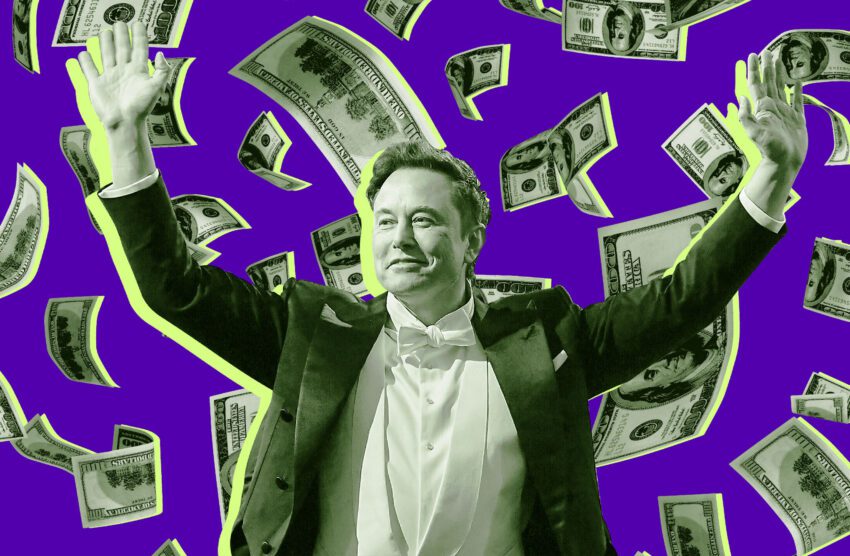
tesla repeating old threats to get shareholders Tesla’s board of directors has issued a stark warning to shareholders: approve Elon Musk’s unprecedented $1 trillion pay package or risk losing him as CEO.
tesla repeating old threats to get shareholders
Background on the Pay Package Proposal
The proposal for Musk’s compensation package comes at a critical juncture for Tesla, with the annual shareholder meeting scheduled for November 6. The board’s lobbying efforts are intensifying, urging shareholders to endorse a deal that would further elevate Musk’s already significant wealth. This proposal is not just about money; it represents a pivotal moment in Tesla’s corporate governance and future direction.
Robyn Denholm, Tesla’s board chair, articulated the stakes in a letter to shareholders. She emphasized that without Musk, Tesla could lose significant value. Denholm stated, “Our company may no longer be valued for what we aim to become: a transformative force reimagining the fundamental building blocks of mobility, energy, and labor.” This framing positions Musk not merely as a CEO but as an irreplaceable visionary whose leadership is essential for Tesla’s ambitious goals, including the development of Full Self-Driving (FSD) technology and the Optimus robot.
Historical Context of Musk’s Compensation
This isn’t the first time Tesla’s board has utilized a similar strategy to secure shareholder approval for Musk’s pay. Last year, shareholders were pressured to approve a $55 billion pay package, which at the time was the largest compensation package ever considered for a CEO. The board successfully garnered support, and shareholders voted in favor of the package despite concerns regarding its size and implications.
However, the current proposal dwarfs the previous one, raising questions about the appropriateness of such a massive compensation package. The stakes are higher now, especially considering the negative scrutiny surrounding Musk’s influence over the board and the company’s operations.
Shareholder Sentiment and Governance Concerns
Despite the board’s confidence, there are significant concerns among institutional investors and governance experts. Proxy advisory firms Institutional Shareholder Services (ISS) and Glass Lewis have both recommended that shareholders reject the current pay package, labeling it excessive and indicative of a board that is overly influenced by Musk. These firms have raised alarms about the potential risks associated with granting such a large package to a single individual, particularly in light of Musk’s previous compensation controversies.
During Tesla’s recent earnings call, Musk did not shy away from expressing his disdain for the proxy firms, referring to them as “corporate terrorists.” This inflammatory rhetoric underscores the contentious atmosphere surrounding the vote and highlights the growing divide between Musk and institutional investors who are advocating for more stringent corporate governance practices.
Legal Challenges and Corporate Governance Issues
The backdrop of this compensation debate is complicated by legal challenges that have arisen regarding Musk’s previous pay package. A Delaware court recently voided a pay deal valued at over $50 billion, citing concerns that the arrangement was flawed and unfair to shareholders. The court found that Musk held undue influence over the composition of the package, raising questions about the integrity of the board’s decision-making process.
Despite shareholders approving the hefty compensation twice, the court’s ruling has cast a shadow over the board’s credibility. Tesla has since appealed the decision to the Delaware Supreme Court, but the outcome remains uncertain. In a strategic move, Musk has also initiated a vote to relocate Tesla’s incorporation to Texas, a state with a less established legal framework regarding corporate governance. This maneuver could potentially shield the company from the stringent corporate laws and precedents that exist in Delaware.
Current Market Conditions and Future Prospects
The timing of the board’s push for Musk’s pay package is critical, especially given the current market conditions. Tesla’s third-quarter sales have seen a boost, largely attributed to consumers eager to take advantage of the expiring $7,500 tax credit for electric vehicles. However, this uptick may be short-lived, as Musk himself has acknowledged that future earnings are likely to decline. The expiration of the tax credit, which Musk played a role in eliminating, could lead to decreased sales in subsequent quarters.
Moreover, Tesla faces increasing competition in the electric vehicle market, with numerous automakers ramping up their efforts to capture market share. The company’s product lineup is aging, and there are concerns about its ability to maintain a competitive edge in self-driving technology. Regulatory credits, which have provided a financial cushion for Tesla, are also set to diminish, further complicating the company’s financial outlook.
Denholm’s Letter: A Call to Action
In her letter to shareholders, Denholm emphasized the importance of retaining Musk as CEO, but she largely sidestepped the pressing challenges that Tesla faces. The letter did not address Musk’s political affiliations, controversial public statements, or his support for various political figures and movements. By omitting these issues, Denholm may be doing shareholders a disservice, as these factors could impact the company’s reputation and long-term viability.
Instead of presenting a comprehensive plan for navigating the challenges ahead, the board’s message appears to be one of maintaining the status quo. This approach raises questions about Tesla’s strategic direction and whether the company is adequately prepared to tackle the evolving landscape of the automotive and energy sectors.
Implications for Shareholders
The implications of the upcoming vote extend beyond Musk’s compensation. Shareholders must consider the long-term trajectory of the company and whether the board’s current strategy aligns with their interests. Approving the pay package could send a message that excessive compensation is acceptable, potentially setting a precedent for future governance issues.
On the other hand, rejecting the proposal could signal a desire for more accountability and a reevaluation of the board’s decision-making processes. Shareholders may also need to weigh the risks associated with Musk’s leadership against the potential rewards of his vision for Tesla’s future.
Conclusion
As the November 6 shareholder meeting approaches, the stakes are high for both Tesla and its investors. The decision to approve or reject Elon Musk’s $1 trillion pay package will have significant ramifications for the company’s governance and future direction. While the board is confident in its ability to secure approval, the growing concerns among institutional investors and governance experts cannot be ignored.
Ultimately, shareholders will need to carefully consider the implications of their vote, balancing the desire to retain Musk’s leadership against the need for responsible corporate governance. The outcome of this vote could shape Tesla’s trajectory for years to come, influencing not only the company’s financial health but also its standing in the broader corporate landscape.
Source: Original report
Was this helpful?
Last Modified: October 27, 2025 at 9:36 pm
2 views














